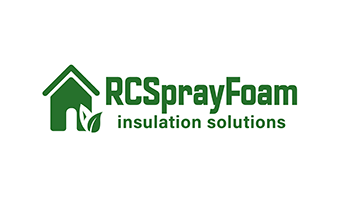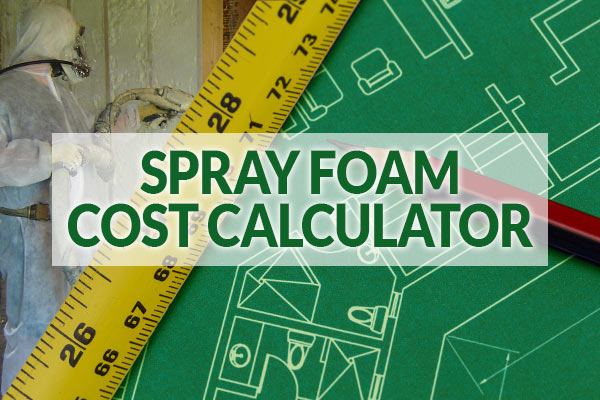Insulation Types

An energy efficiency probe will reveal that there is a significant amount of energy that is lost in cracks and crevices in walls around the home, especially the attic. Through the various insulation methods, spray foam insulation has proved to be the most effective. Understanding the way the various insulation types work will give more insight on why spray foam insulation is the best when it comes to effectively protecting your building from energy loss.
Batts and Blankets
They are a very common mode of insulation today. Due to their widespread popularity, people prefer to install the insulation themselves. This can prove to be a difficult task as fiberglass batt insulation can be hard to correctly fit around plumbing pipes, wires, and electrical outlets.
If they are not carefully fitted into the areas that need insulation, these fiberglass batts have been found to lose their insulation effectiveness by up to 50%. Their R-value is fairly lower as well, compared to spray foam insulation, only racking up to R-13 for a two-by-four framed wall. They have standard widths that are designed to fit between studs, joists, and rafters.
This is both an advantage and a setback because the standardized width means that if a joist is slightly larger, it won’t be insulated completely. Batts also tend to compress very easily, meaning that they are likely to lose their insulation properties much faster.
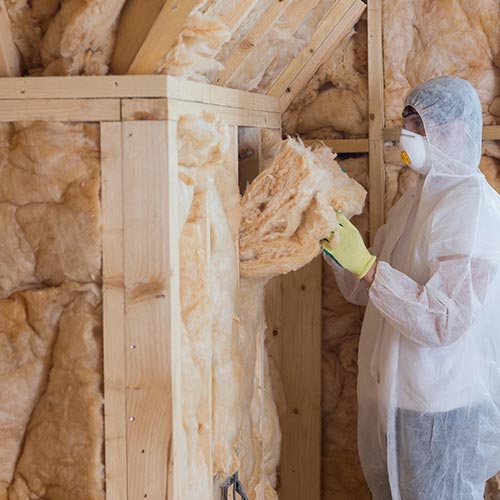
Batts and blankets have a slight edge over fiberglass but are very rare in the market. Their R-value is slightly higher than that of fiberglass but their demerits are almost the same. The fact that they tend to retain moisture means that they are likely to harbor the growth of mold and algae on walls and ceilings.
Loose fill insulation
They consist mainly of fluffy strands of fiber that is blown in attic walls using a special machine. They are effective in eliminating the cold spots around the house since they fill up the crannies and holes.
Compared to spray foam insulation, they also have a lower R-value of only 2.2 – 2.7 per inch. Loose-fill fiberglass, due to their fluffy nature and loose insulation, they are very likely to lose up to 50% of their effectiveness during extremely cold weather, the very conditions they are made to protect against.
Loose-fill cellulose has a higher R-value of about 3.2 – 3.8 per inch and can withstand some adversities in weather, but they are too heavy for attic installations.
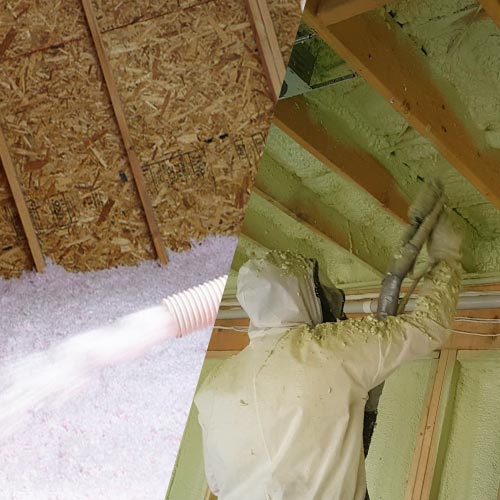
Structural insulated panels (SIPs)
These are best for new ceilings, walls, and roofs, and although they have a high R-value, they still do not have the best insulation properties in the market since they must be cut to fit into pipes and other wall penetrations, hence leaving gaps. Since they are not structural, you can barely nail anything to them, making it easy for rodents to tunnel through them. SIPs require the support of other forms of insulation to be fully effective.
Spray foam insulation, on the other hand, has the highest R-value per inch than any other insulation type (6.5). Not only that, but it forms an air barrier, which is handy in eliminating other weather threats, such as water vapor entry.
Our spray foam contains chemicals that expand to form a plastic, which completely seals all cracks and gaps, preventing any form of air leaks. The closed cell polyurethane spray foam is very useful in stopping the movement of air and moisture. They are also very long lasting compared to other insulation methods, hence you will need not to worry about constantly needing to replace them.
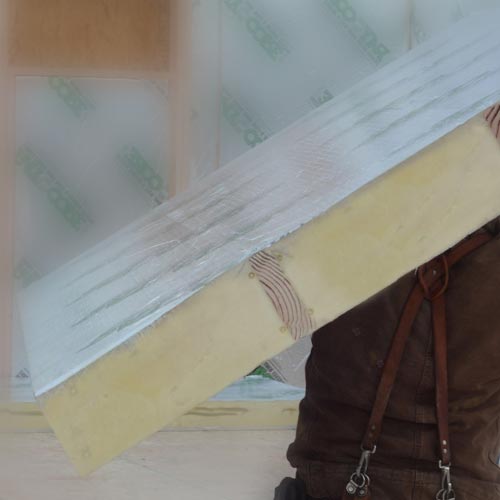
While some of these may appear insignificant to the common observer, their impact on your energy cost over the long term is immense. Our technicians will take a look at your home and identify all areas that require sealing before commencing work. It is advisable to remove any items stored in attics and other heavy work areas in advance so as to make the insulation job quicker and more efficient.
To receive a free quotation for your home’s spray foam insulation, call us on 1-647-973-3626.
